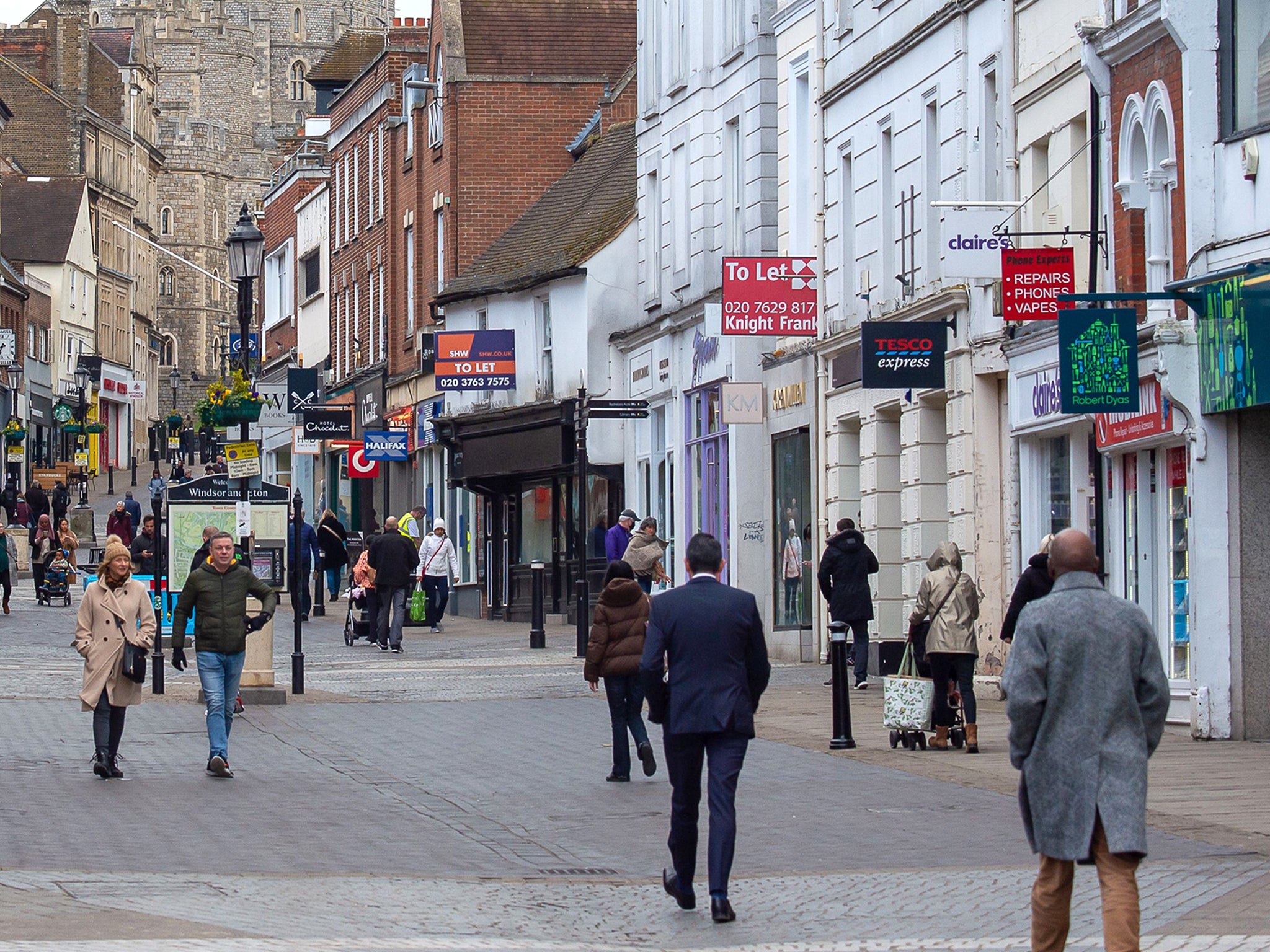Recession warning as confidence among shoppers falls to lowest since 2008 financial crash
Economy could soon shrink as shoppers slash spending and businesses take a hit

Your support helps us to tell the story
From reproductive rights to climate change to Big Tech, The Independent is on the ground when the story is developing. Whether it's investigating the financials of Elon Musk's pro-Trump PAC or producing our latest documentary, 'The A Word', which shines a light on the American women fighting for reproductive rights, we know how important it is to parse out the facts from the messaging.
At such a critical moment in US history, we need reporters on the ground. Your donation allows us to keep sending journalists to speak to both sides of the story.
The Independent is trusted by Americans across the entire political spectrum. And unlike many other quality news outlets, we choose not to lock Americans out of our reporting and analysis with paywalls. We believe quality journalism should be available to everyone, paid for by those who can afford it.
Your support makes all the difference.Confidence among shoppers has fallen to its lowest level since the 2008 financial crash as the soaring cost of living prompted a sharp drop-off in spending, new figures show.
The disastrous economic data led analysts to warn that the crisis is at risk of turning into a full-blown recession with prices rising and shoppers tightening their belts.
Struggling households cut back spending on online purchases, food and fuel, analysis found, while Rishi Sunak was told the public hasn’t been given the help they need.
And economists are warning that much worse is likely to come, with the impact of huge increases to energy bills and rises in tax and National Insurance yet to hit.
Official figures released on Friday showed retail sales fell 1.4 per cent in March, faster than February’s 0.5 per cent drop. Online spending was down 7.9 per cent as the lifting of Covid restrictions saw people return to buying in stores.
Fuel sales tumbled 3.8 per cent as record petrol and diesel prices caused motorists to cut back on non-essential journeys.
Energy and fuel costs have pushed up the price of several other goods from food to clothing, which sent inflation to 6.2 per cent − well above average pay rises.
The squeeze on real incomes is now beginning to cause a crisis of confidence among shoppers, separate data showed. A closely watched consumer confidence index compiled by market research firm GfK fell to a level of -38 in April − the lowest level since 2008. The poll indicates that a further decline in spending is likely.
The “rapid yet predictable” fall in spending had been made more severe government decisions to cut benefits and hike taxes, said George Dibb, head of the IPPR centre for economic justice.
“Rishi Sunak’s decision to not adequately support households isn’t just a crisis for people struggling to get by, it actually risks tipping the UK economy into recession,” he said.
The chancellor has been criticised for failing to announce more help for people unable to keep up with rising bills and a surge in inflation.
A £150 council tax rebate and a repayable £200 reduction on energy costs have been widely seen as poorly targeted and inadequate. Energy bills for the average home are almost £1,000 a year higher than they were just over a year ago after the price cap jumped 54 per cent this month.
Millions of Britain’s poorest households have also seen their incomes cut after the government refused to increase benefit payments in line with inflation.
Mr Dibb warned that people will be looking for other places to save money as the cost of living crisis starts to bite, depressing the wider economy. “Cutting back on shopping, meals out, holidays, and streaming subscriptions are the first to go,” he said.
James Smith, research director of the Resolution Foundation, said the risk of recession had increased and called on ministers to do much more to prevent one from occurring.
Months of shrinking pay packets and worries about living costs have begun dragging down economic activity, he said. “A fresh downturn is far from certain, but the government should be doing all it can – and far more than it currently is – to help support those on low incomes who will be hardest hit.”
Sam Tims, economist at the New Economics Foundation, said the policy announcements so far were nowhere near enough to deal with living cost increases. The decision not to increase benefits will harm the wider economy, he said.
“It has an individual impact of more people going hungry or being unable to heat their homes but there is also an economic impact.” Mr Tims said. “If people can’t spend money in the high street, in pubs and elsewhere, consumer spending will drop and that is something that is likely to lead to a recession.”
He added he did not see the situation improving any time soon and called on the government to ensure everyone in the UK has a living income.
“We are already seeing consumers adopt coping mechanisms to deal with the squeeze in incomes, such as seeking value and trading down,” Lisa Hooker, consumer markets leader at PwC, said, adding: “We have also seen more resilience in spending across the older age groups, maybe reflecting that they were less impacted through lockdown in terms of finances but also are likely to be helping out their families.”
Join our commenting forum
Join thought-provoking conversations, follow other Independent readers and see their replies
Comments